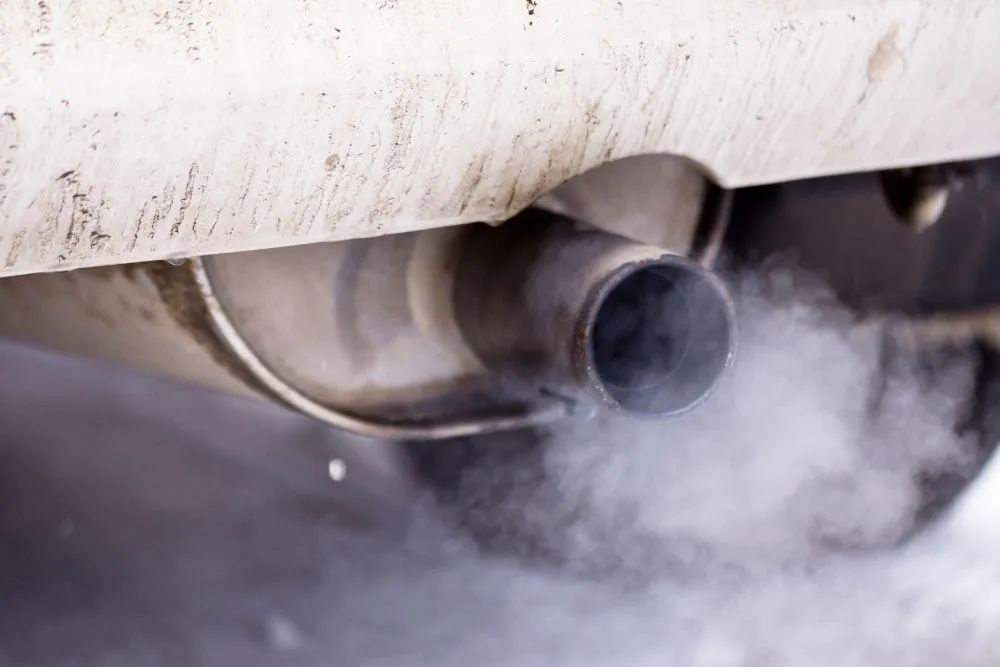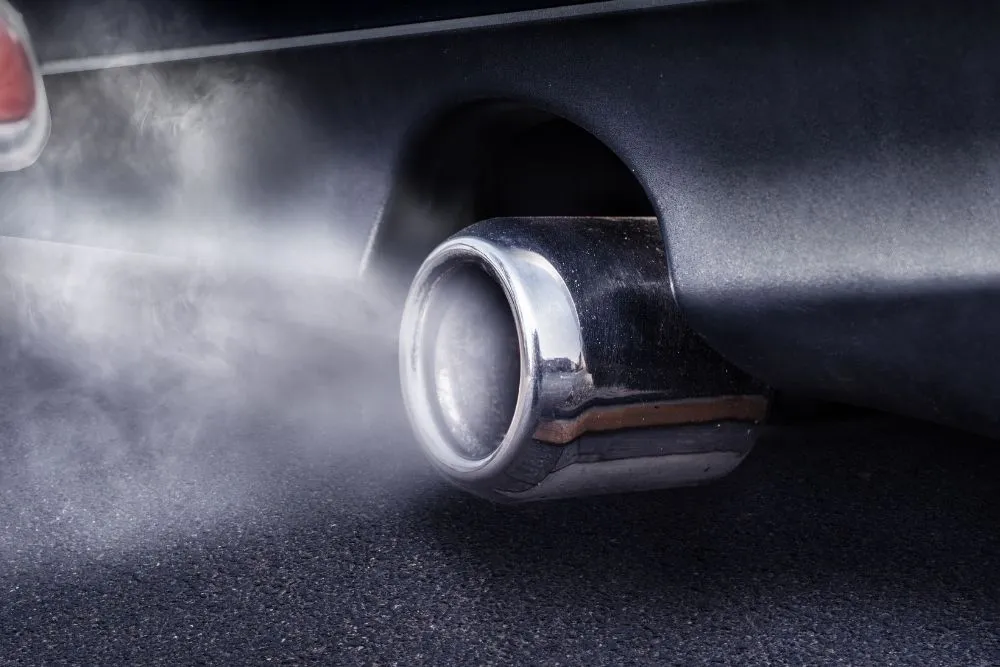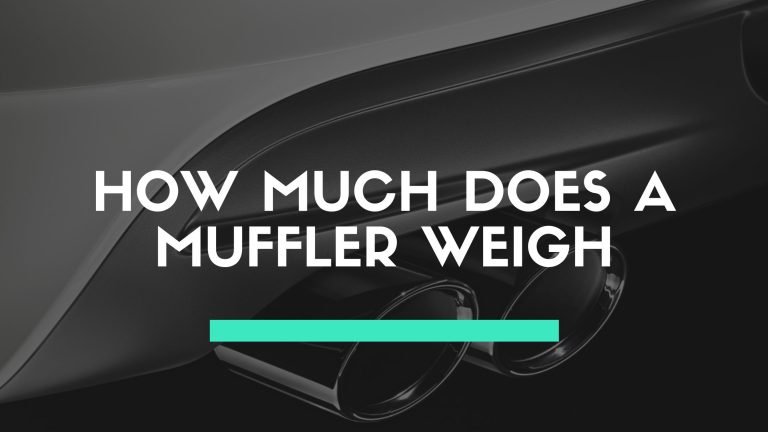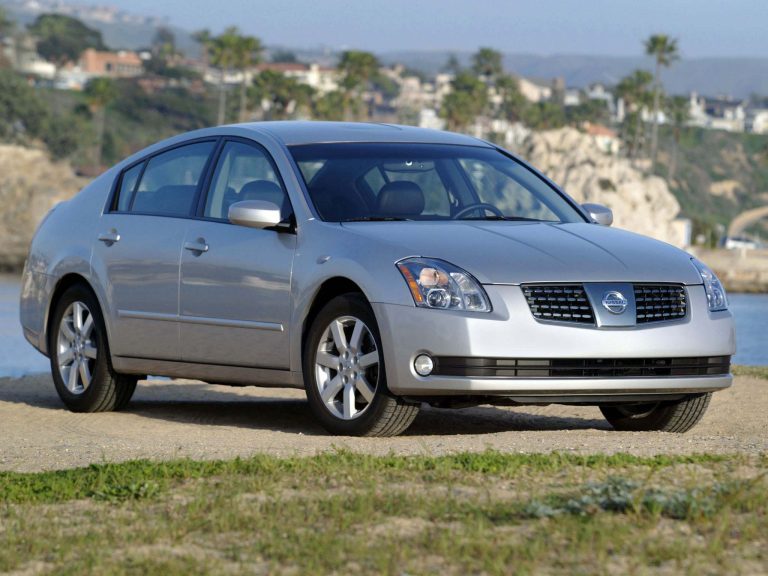Why Do Cars Backfire? (Answered)
It can happen to anyone. You jump in your car, hoping to beat the morning traffic and get to work on time. Then, out of the blue, you hear a loud bang that sounds like a gun has gone off! No, it wasn’t a gun or a firework, it’s your car.
This loud sound happens when your vehicle has backfired. The sound is alarming enough, but your car may also power down afterward, adding to your stress. If you’re wondering why your car may backfire, you’re in the right place. Read on to find out some reasons why cars backfire in this article.
How A Car Engine Works
A car has an internal combustion engine that needs air, flammable liquids, and small (controlled) explosions to power itself. If this system isn’t working as efficiently, backfires can happen. Knowing how your engine works can help you find out why your car is backfiring.
Your internal combustion system converts air and fuel into horsepower. It does this in five steps.
- The intake valve on the fuel cylinders opens, allowing a fuel and air mixture to pass through the engine.
- The intake valve closes, then a piston starts pressing the same fuel and air mixture.
- Once the mixture is completely flattened, a spark plug passes electricity into the air-fuel solution. This fires it up into a small and controlled blast.
- The blast releases gases which drive the piston back again. This is called a ‘power stroke’. This reaction also propels the crankshaft, operating the gears and supplying power to the wheels.
- The combustion process also releases smoke and residual material. An exhaust valve opens and closes to let these out through the tailpipe. As the engine runs, the operation repeats simultaneously. Several cylinders and pistons work in tandem which makes the vehicle’s wheels spin round.
Why Does A Car Backfire?
Backfires generally occur when one of the controlled blasts mentioned above happens outside of the fuel cylinders. Backfires can escape out of the exhaust system or move upwards through the intake valve. If they are released through the exhaust, a backfire known as an afterfire can happen. Afterfires may look like actual flames coming out of the tailpipe.
Both afterfires and backfires should always be looked at. If they are left untreated, it may induce power loss, engine damage, and lower fuel efficiency. Several things can make your car backfire, but we’ve covered the most common reasons below.

Fuel to Air Ratio
Effective engine combustion needs a specific fuel to air ratio. Too much of either component can make your engine ‘run lean’ or ‘run rich’.
A running rich engine means that it hasn’t got enough air but has too much fuel. This makes the combustion operation slow down. If combustion doesn’t occur with the right timing, the fuel and air mixture is still firing up while the exhaust valve opens. This makes the blast escape out of the cylinder, creating a loud banging noise.
Conversely, an engine that’s running lean has too much air and not enough fuel. This slows down combustion, producing backfires in the process.
Spark Plugs Misfiring
Spark plugs need to be in proper shape, as ones that aren’t up to standard can be responsible for backfires. Faulty wiring, wiring shorts, and damaged distributor caps are all signs of damage. These can all send the charge to the wrong plug at the wrong time.
These are often seen in older cars, but malfunctioning plugs can still happen in newer vehicles. This normally happens if the spark plugs have carbon buildup or if they’ve become worn out with wear.
Poor Timing
The right timing is essential for the combustion process. The wrong timing can make the spark happen earlier or later than intended. Valves can also open and close when they aren’t needed. Backfires occur when the fuel and air mixture isn’t flattened enough, set alight, and contained.
Improper timing is seen more in older vehicles, as these have catalytic converters and timing belts that can get damaged. Newer vehicles have engines with reliable computer-controlled timing, making backfires less of an issue.
Older Engine Issues
Classic cars may look amazing, but their older engines are prone to issues, including backfiring. Older engines aren’t run by computers, so they’ll need to be examined and maintained regularly, also known as a tune-up.
Modern cars don’t use spark plug wires. Today’s vehicles have different coil-on-plugs designs that provide greater control of when the engine produces its sparks. Spark plug wires on older vehicles can get installed incorrectly or crossed over. This can make sparks fire in the cylinder at the wrong time, causing the car to backfire.
Older classic cars also have carburetors instead of fuel injectors. When carburetors aren’t working properly they won’t spray the correct amount of fuel. This messes with the air-fuel ratio, also causing an engine to backfire.
Why Cars Backfire When Changing Gears
Some backfires can occur when you shift gears, but if you do hear a bang after shifting gears, this will be an afterfire. These normally happen on manual cars when a clutch is pressed to change gears.
As you press the clutch pedal to go up a gear, fuel can carry on entering the cylinders. This fuel isn’t burnt, so it continues to grow within the exhaust. Once the clutch is released, the fuel ignites. This sounds scary, but fires that occur upon changing gears aren’t automatically bad for your car.
In Summary
A car backfiring can be a scary sound, but knowing how your engine works can help you understand why it happens. The most common issues that can make your car backfire include faulty spark plugs, poor combustion timing, incorrect fuel to air ratio, and older engines.
Modern technology uses computer-controlled engines to minimize these issues, but backfires can still occur. If your car is backfiring, head to a mechanic or seek professional help. Leaving your vehicle untreated can cause further issues down the line.
Frequently Asked Questions
Can a backfire damage an engine?
You should always examine your engine if your car has backfired, as they can lead to further damage to your engine. You may also find that your engine loses power and wastes more fuel when used. Cars that backfire regularly will require immediate repair.



